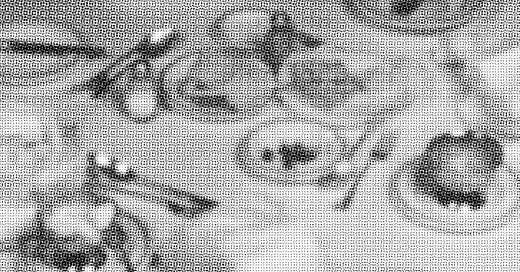Slowing down to see as we process
Finding comfort and joy in archival food processing and repetition.
I’ve been feeling sick, and unable to slow down, family, friends, food and the feeling that the end of the year is desperately imminent. I’d like to take time to reflect and adjust to the concept of another year, but now doesn’t feel right. It feels right to rest, to watch, to care. Spring feels more apt for the flurry and celebration of a new year, of new life. Friends at the table tell me people couldn’t survive the coming winter months without the reprise of a reason to move on, start a new and feel the change under them. I’m not so sure, either way, It’s likely a bit of both, celebrate now, warmly, snuggly and with the cheer of crisp wind and bubbles and celebrate then when the grass greens and the frost melts.
I’ve finally slowed down today, I’m on the sofa eating re-gifted chocolates, chicken soup and slow cooked spinach and watching, reading and researching. As an ode to this rest and in the face of ongoing celebrations this instalment of The Butter Knife is dedicated to all the fragments I’ve seen in the moments of calm that punctuate the wonderful chaos of festivities. I’ve found myself drawn to films that honour the process of food, growing, preparing, storing and dining. There’s comfort in the preparation, that act of doing, calmly, without too many surrounding you. The methodical nature of tasks that come in succession allows for a rhythmic grounding only made possible through repetition, and I’ve found this deeply comforting to reflect on as I watch these snippets of experts doing just so.
This government film is a public record, preserved and presented by the BFI National Archive on behalf of The National Archives.
“Storing Vegetables Outdoors” was directed by Margaret Thomson in 1941 and is part of the series; “Dig for Victory”, a government sponsored campaign to encourage Britain to transform their flowerbeds and lawns into vegetable gardens. I love seeing the soil so moist and easily dug, the ritualistic nature of delicately stacking and encasing the potatoes for their slumber and preservation, and the straw poking playfully out from the top of the earth to let the potatoes breath. This film feels like reciprocity to me and the idea that people watched this instructional video and replicated the notions in the same loving way fills me with joy.
“Work On An Orchard” by Denis Knowles is an Amateur film captured in 1951 on the sun drenched Oliver’s farm in Colchester England. It has no sound and yet you can hear the squeaking apples as they’re shined and the crack as one is pulled off a branch. Knowles was an avid home movie maker renowned for capturing his family as they worked, showing his movies at staff parties and events. I love this portrait of a farm filled with life and harvest, the colours gleaming and the people chatting, the ground dense with rows of apples curving around the women working.
“Craigside Hydro Hotel, Llandudno” shot by Leslie Albert Gray in 1954. A home movie created by Gray an employee of the Western Welsh bus Company England. It’s thought he drove guests to this 4-star, luxury hotel and took time to capture what he saw. It’s so beautiful to see the clearing of a meal, the ending to a night well spent. There’s so much finesse and order to this undoing, almost as if we’re seeing the party in reverse. But most of all, its warming that Gray decided this worthy of capture, that he saw the value, as we do, in this glorious moment of order and grace. I think this is what I like most about these films of process, that each film maker saw the worth behind the act and took time to enshrine these moments. For this year ahead I want to observe the small acts of process, the missed moment and celebrate all that is overlooked and often unseen.




